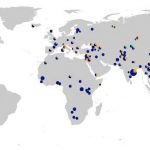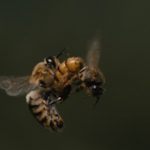
- Xconomy this week (January 4) reviewed the USPTO’s interference proceeding process, which is only granted when the appealing camp has made a compelling argument. “I’ve never seen an examiner recommend interference and not have it declared,” patent attorney Muna Abu-Shaar of Biospark Intellectual Property Law in Cambridge, Massachusetts, told Xconomy.
- Meanwhile, Wired examined the implications of winning a CRISPR patent: “If the interference proceeding negates the Broad’s patent, that could spell the end of Editas (and all that capital!) while clearing the way for several other companies that have licensed the competing, Berkeley-originated patent. A lot is at stake.”
- And speaking of Editas, The Boston Globe reported that the company this week (January 4) filed for its initial public offering, starting with $100 million in stock.
Correction (January 6): The original version of this post added to the Wired quote that Editas was founded by Doudna, when in fact she was one of five cofounders, including Feng Zhang, George Church, J. Keith Joung, and David Liu. The Scientist regrets the error.











RSS